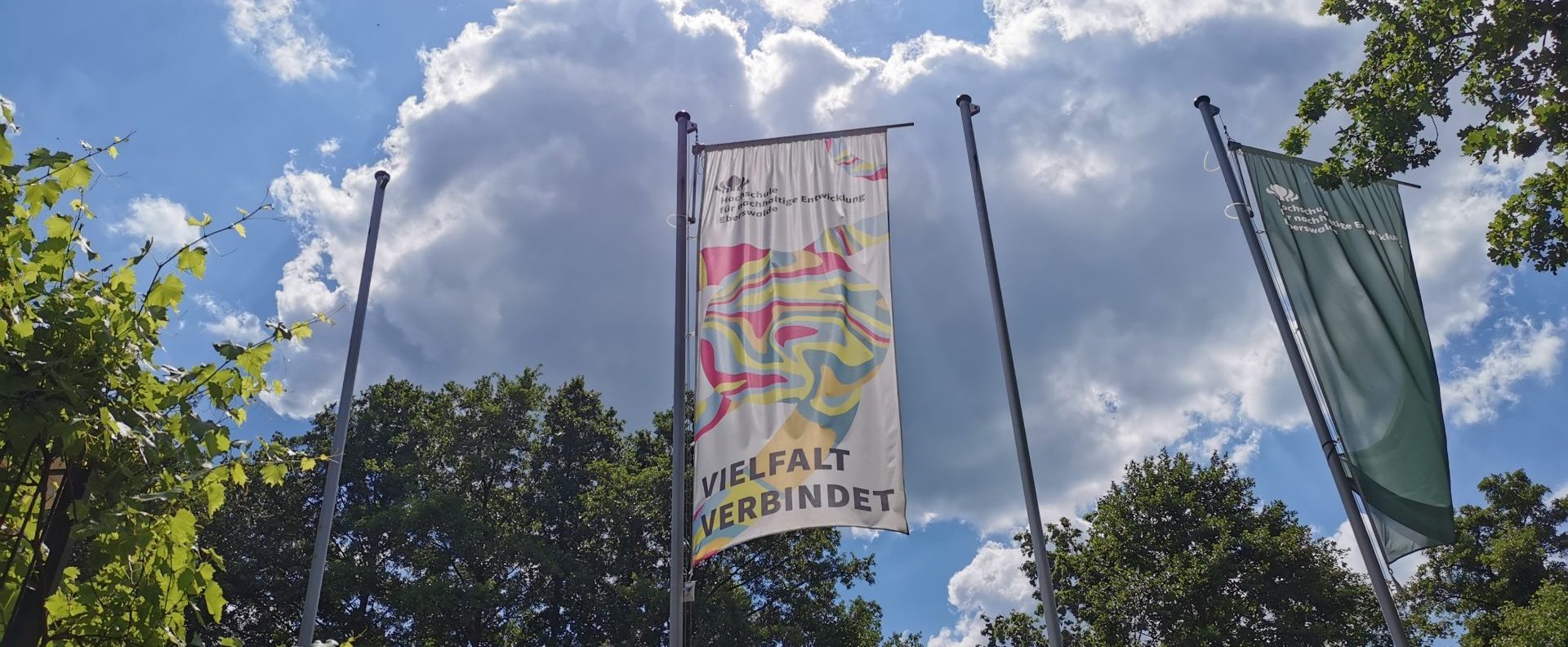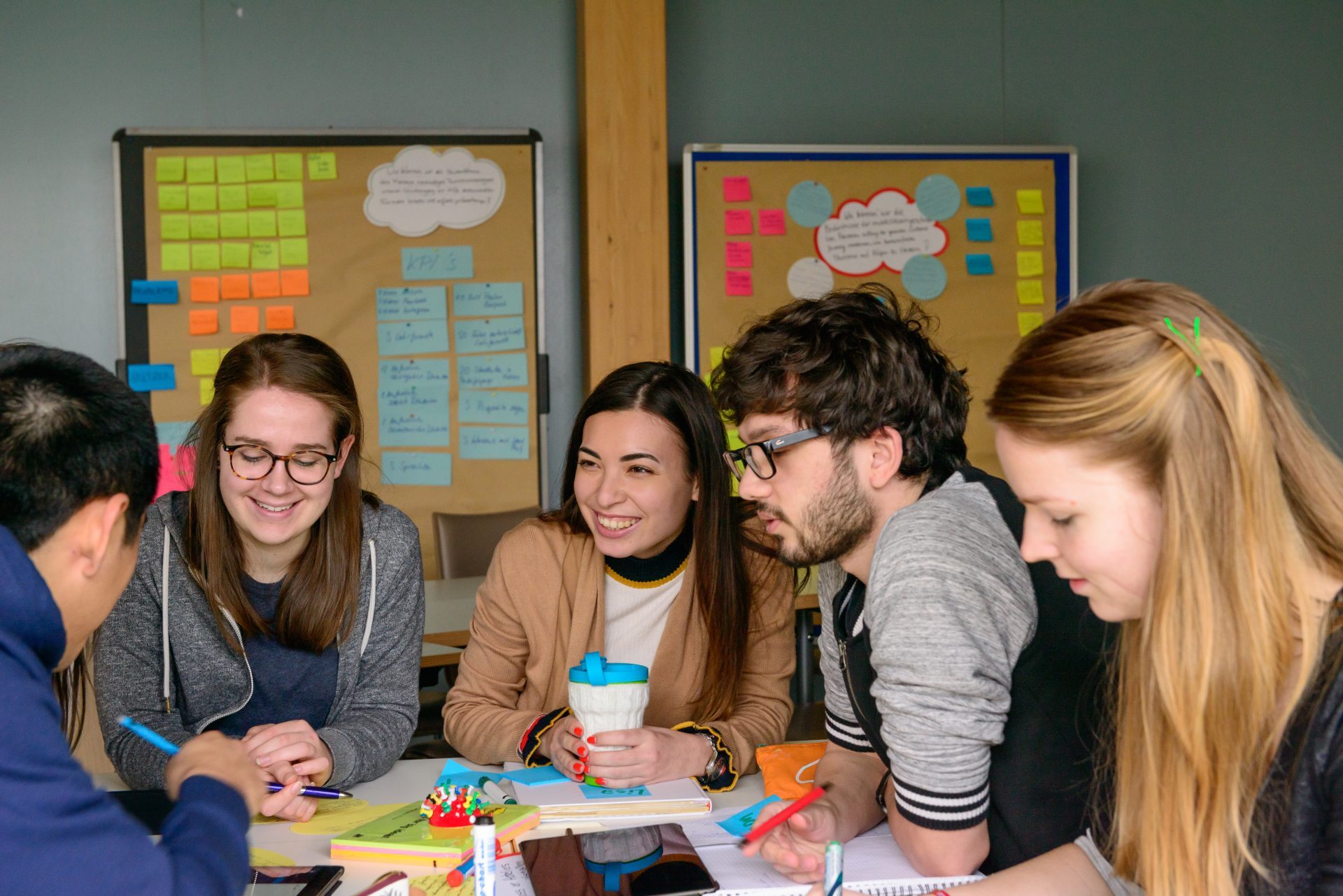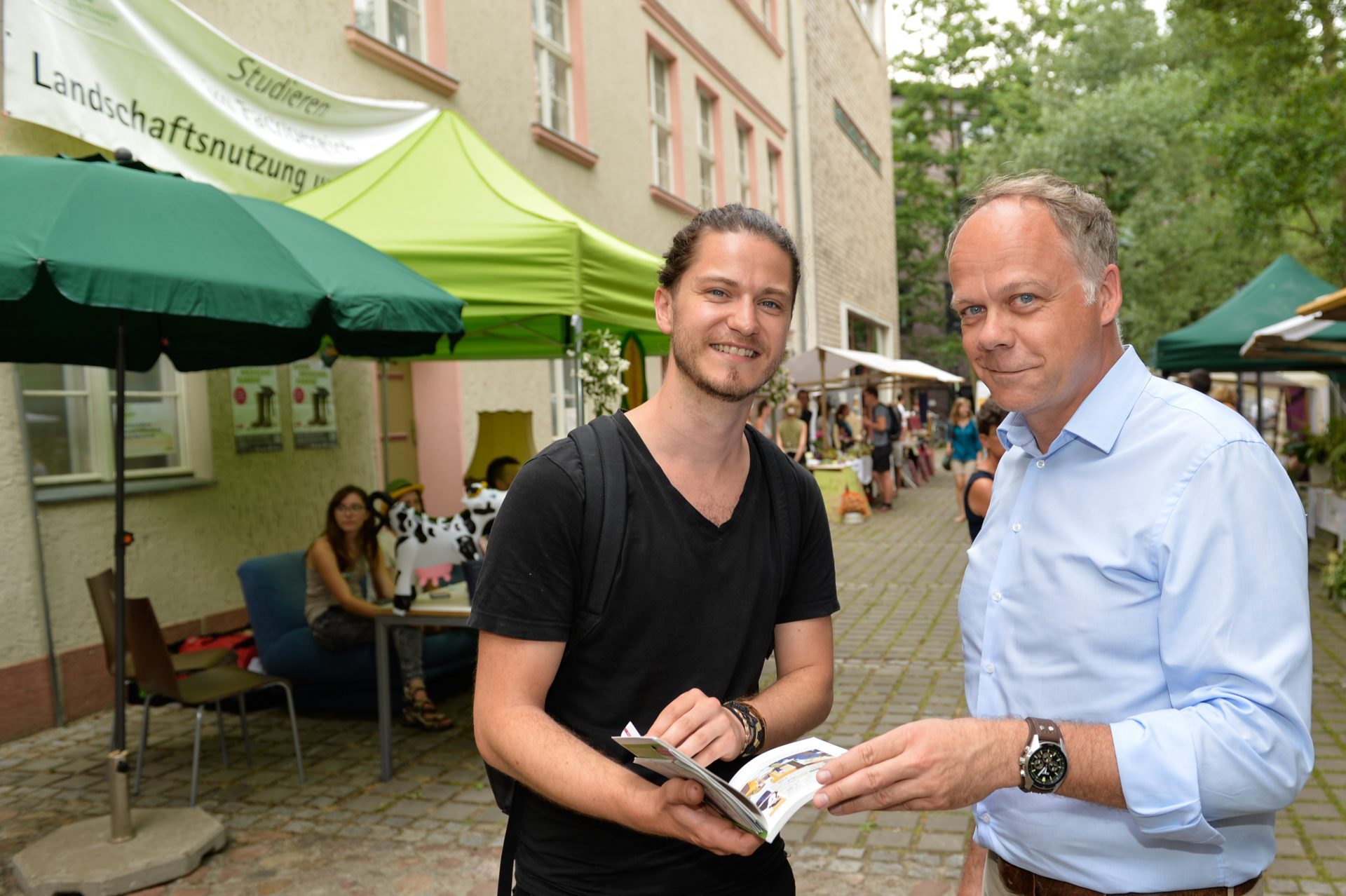Shaping a sustainable future – together, holistic, determined.
Eberswalde has been dedicated to sustainable education and research for more than 190 years. The Eberswalde University for Sustainable Development (HNEE) was founded in 1830 as the Higher Institute of Forestry (Höhere Forstlehranstalt). Since academic teaching began again in 1992 at the historic site for forest and wood research just outside Berlin, the university has laid its focus on future-oriented industries and key sectors such as nature protection, forest management, organic farming, climate change adaptation, sustainable economics, timber construction and sustainable tourism management.
The HNEE is, with its holistic approach to sustainability, its unique range of courses geared towards future-oriented topics and its strong institutional commitment to the field of sustainability research, a driving force for sustainable development. Around 2,300 students from about 60 nations study and more than 400 employees teach, research and work at the modern university. The mission of the HNEE is to lead the transformation towards a sustainable society by developing viable model solutions and equipping students with the necessary skills to shape the future.
Diverse study programmes, some of which are unique throughout Germany, are based at the four faculties of Forest and Environment, Landscape Management and Nature Conservation, Wood Engineering and Sustainable Business. The programmes have a distinct profile dedicated to sustainable development and the societal transformation this requires. Sustainable development is the underlying maxim, and it is consistently put into practice in all areas of the university – in teaching, research, business and transfer – and continually developed using participatory approaches.
Together for sustainable and diverse development
Here at the Eberswalde University for Sustainable Development, we have to live up to our name. At the HNEE, sustainability is not only an integral part of teaching and research, it is also consistently applied in the running of the university and social interactions between staff members and students. In recognition of this, the university was certified with the European ecolabel EMAS in 2009 for its pioneering environmental management. In addition, we were delighted to receive the EMAS award in the “Small public organisations” category in 2010 and 2017, particularly as we were the only German university at the time to have been honoured by the EU Commission in this way.
The Principles for Sustainable Development are formulated by the Round Table for Sustainable HNE Development – a university-wide, self-organised initiative which works closely together with the university groups. We want our approach to set an example, and we want to continue to build on our experiences and knowledge together with partners and share them with others. In accordance with our goal as a climate-friendly university, we have been climate-neutral since 2014. In October 2014, the HNEE entered a cooperation partnership with Ivakale e.V. – founded by HNEE alumni – to offset unavoidable CO2 emissions through a clay oven project in Kenya. On 1 March 2018, the offset project was certified a Gold Standard climate protection project. It is also integrated in the teaching and research at the HNEE.
But we also make a difference locally. Through the introduction of the climate-neutral semester ticket in September 2017, we motivated all public transportation partners in Berlin and Brandenburg to do their bit for environmentally-friendly mobility. In Eberswalde, we worked together with Hebewerk e.V. to introduce a reusable deposit cup which aims to drastically reduce the consumption of single-use coffee cups in our two university cafeterias as well as local cafes.
Founded in January 2020 under the leadership of Prof. Dr. Benjamin Nölting, the Sustainability – Transformation – Transfer research centre dedicates itself to questions ranging from sustainability transfer to sustainability transformation at different levels. The centre’s research focuses on such questions, which will then be disseminated using appropriate (educational) formats.
Successful research
The HNEE sets itself apart through its close research links to a wide range of partners as well as its high level of third-party funding for applied research. At 12.1 million euros, it is one of the two Brandenburg universities which raise the most third-party funds (as of 2022). The research profile of the HNEE is characterised by its focus on three research areas:
1) Sustainable development of rural areas
2) Sustainable production and use of natural resources
3) Sustainable management of limited resources
About the Biosphere Reserves Institute (BRI)
The BRI is unique in the world. The scientific institution was established for the comprehensive support and further development of biosphere reserves. Even before it was founded in November 2019, HNEE has maintained close cooperative relationships and joint project work with biosphere reserve administrations and in biosphere reserves for many years. In addition, the Biosphere Centre was founded well in advance together with the Michael Succow Foundation and the National Natural Landscapes e.V. Firm partnerships have been established with several national and international biosphere reserves. In 2023, the BRI was classified as a UNESCO partner institute. (View here the website)
#Studying in Eberswalde
Thinking about studying in the fields of sustainable economics, tourism, wood engineering or nature conservation? Be it a Bachelor’s, Master’s, dual or part-time degree – sustainability-focused study programmes for the future await you at the Eberswalde University for Sustainable Development. Come to our open day and find out what you can study here, just a stone’s throw from Berlin! Our student advisory service is available to answer any questions you might have about our diverse and unique range of programmes. We look forward to seeing you there.


